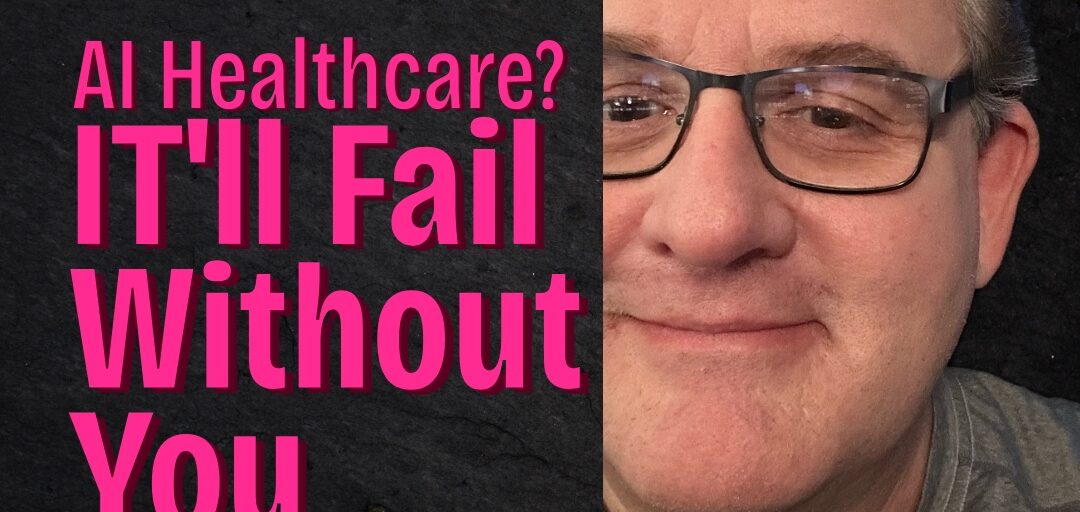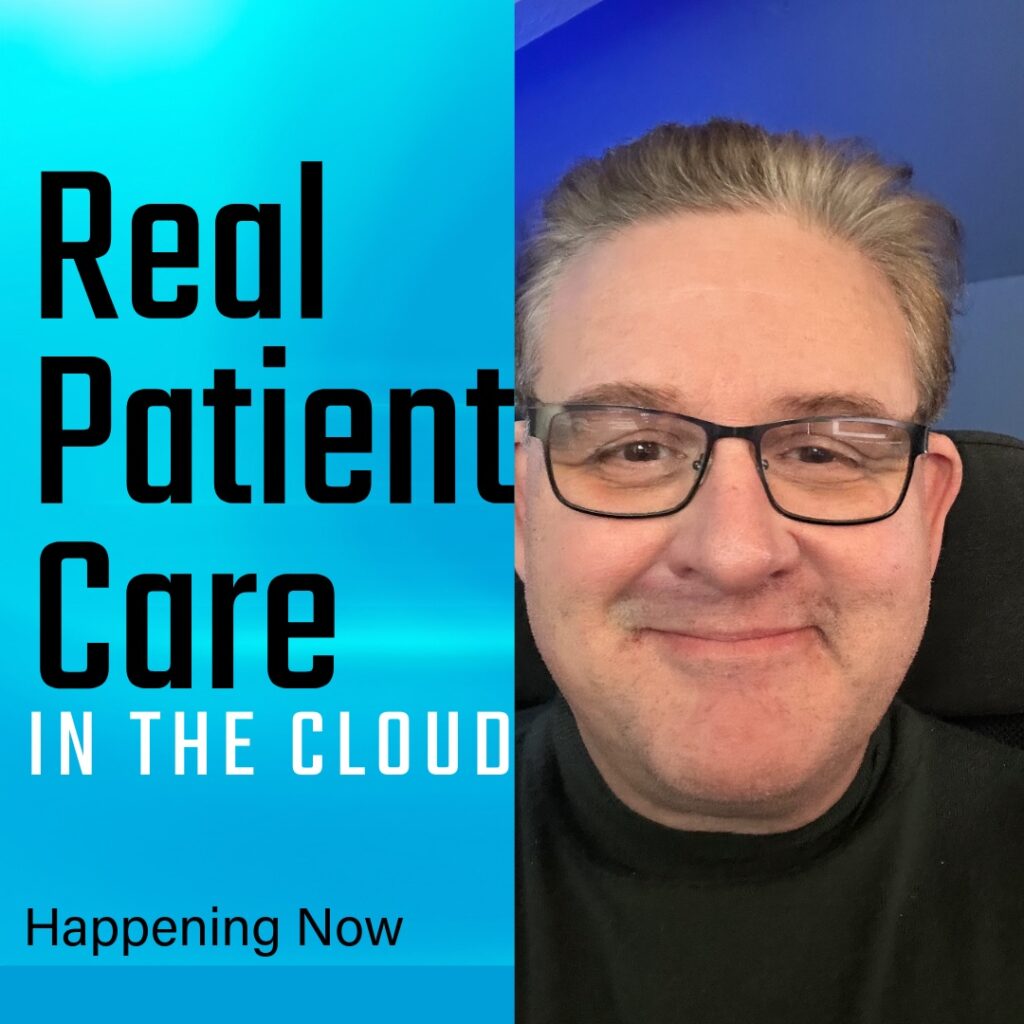The AI Healthcare Revolution: Why Clinical Pros Should Position for Digital Careers Now
Written by Rod on September 8, 2025
Are you watching the AI revolution unfold in healthcare and wondering if you should pay attention? Let me tell you a story that might change your perspective forever.
Back in 2009, when the Meaningful Use legislation hit the US, most healthcare professionals thought electronic health records were just another administrative headache. They complained about clunky interfaces, workflow disruptions, and the time it took away from patient care. But I was already deep into my digital health career, and I recognized something most people missed: this wasn’t optional—it was inevitable, and it wouldn’t stay confined to America.
When US hospitals suddenly realized they had to implement EHR systems to receive federal funding, they discovered a painful truth: they desperately needed professionals who understood both clinical workflows and digital systems. That’s when my real gold rush began. I found myself earning more in a single consulting project than many colleagues made in an entire year of bedside nursing.
But the story didn’t end there. What started with US Meaningful Use created a global wave of digital transformation. The NHS began its own massive digitization efforts, European healthcare systems accelerated their digital adoption, and healthcare organizations worldwide realized they needed the same expertise that Meaningful Use had demanded. My consulting work expanded internationally as the digital health revolution spread far beyond American borders.
The AI Revolution Is Meaningful Use All Over Again
Today, I’m watching the exact same pattern unfold with artificial intelligence. Healthcare organizations are experimenting with AI tools, some grudgingly, others enthusiastically. But here’s what most people don’t see coming: AI adoption in healthcare isn’t optional—it’s about to become compulsory.
Just like Meaningful Use forced digital transformation in 2009, regulatory and economic pressures will soon make AI implementation mandatory for healthcare organizations. The Centers for Medicare & Medicaid Services are already exploring AI performance metrics for quality reporting. Insurance companies are beginning to require AI-powered clinical decision support for certain high-risk procedures.
The question isn’t whether your organization will adopt AI. The question is whether you’ll be positioned to capitalize when it happens.
Why This Moment Feels Like 2009 All Over Again—Globally
The parallels between today’s AI landscape and the pre-Meaningful Use era are striking, but this time the transformation is happening simultaneously across international healthcare systems:
Then: US hospitals knew they needed EHR systems but had no idea how to implement them effectively. Now: Healthcare organizations worldwide—from NHS trusts to Australian Health Services to German hospital networks—know they need AI capabilities but lack the expertise to deploy them successfully.
Then: Vendors promised EHR solutions that would solve all problems but delivered systems that created new headaches. Now: AI companies promise revolutionary healthcare improvements but often deliver tools that don’t fit real clinical workflows in any healthcare system, whether it’s the US fee-for-service model or the UK’s nationalized structure.
Then: Successful implementations required professionals who understood both clinical needs and digital systems. Now: Successful AI deployments require professionals who understand both patient care and artificial intelligence capabilities—regardless of which country’s healthcare system you’re working within.
The difference this time? You have the advantage of seeing this pattern before. While others are caught off guard by mandatory AI adoption, you can position yourself as the essential bridge between technology and clinical reality.
The Clinical Professional’s Secret Weapon
Here’s what I learned during the Meaningful Use gold rush: you don’t need to become a programmer to dominate in digital health. The most successful professionals weren’t those with computer science degrees—they were clinical professionals who mastered the tools created by programmers who knew nothing about real clinical needs.
The same truth applies to the AI revolution. Tech companies are building incredibly sophisticated AI algorithms, but they’re struggling with a fundamental problem: they don’t understand healthcare workflows, patient safety requirements, or clinical decision-making processes.
Your Competitive Advantage: You possess the clinical knowledge that AI developers desperately need but can’t easily acquire. While they focus on technical capabilities, you understand the human element that makes technology actually useful in patient care.
The Learning Curve Reality: Just like with EHR implementation, you don’t need to understand how to build AI systems—you need to understand how to use them effectively and guide their implementation in real healthcare settings.
The AI Mandate Is Coming—Worldwide
Multiple forces are converging to make AI adoption in healthcare inevitable across global healthcare systems:
International Regulatory Frameworks: The EU’s AI Act includes specific healthcare provisions. The UK is developing NHS AI governance standards. Health Canada is creating AI medical device regulations. Government agencies worldwide are developing oversight frameworks that will eventually require healthcare organizations to demonstrate AI governance and safety protocols.
Global Economic Necessity: Healthcare systems worldwide face similar pressures to improve outcomes while controlling costs. Whether it’s the NHS managing budget constraints, Canadian provinces optimizing healthcare delivery, or German hospitals improving efficiency, AI implementation is becoming essential for competitive survival.
Universal Quality Metrics: International healthcare accreditation bodies are developing AI-enabled quality measures. Pay-for-performance models globally will soon include AI requirements, making adoption financially mandatory.
Patient Expectations Everywhere: As consumers worldwide experience AI in other industries, they’re expecting the same level of intelligent, personalized service from their healthcare providers, regardless of whether they’re in London, Toronto, or Sydney.
The Timeline: Based on the Meaningful Use precedent, we’re likely 2-3 years away from legislation that makes AI adoption financially necessary for healthcare organizations.
Positioning for the Gold Rush
Smart clinical professionals are positioning themselves now, before the mandate creates desperate demand for their expertise. Here’s what the early positioning looks like:
AI Literacy Development: Understanding how AI works in healthcare without needing to program algorithms. This means learning concepts like machine learning, natural language processing, and predictive analytics at a practical level.
Implementation Experience: Participating in AI pilot projects at your current organization or volunteering to help with AI tool evaluations. This hands-on experience becomes incredibly valuable when organizations need to scale their efforts.
Network Building: Connecting with other clinical professionals who are already working in AI healthcare roles. These connections provide insider knowledge about opportunities and challenges.
Domain Expertise: Identifying specific clinical areas where AI can make the biggest impact and developing deep knowledge about solutions in those domains.
The Real Money Is in the Bridge
During the Meaningful Use era, the biggest financial opportunities weren’t for programmers building EHR systems—they were for professionals who could bridge clinical needs with digital capabilities. The same pattern is emerging with AI.
AI Implementation Consulting: Healthcare organizations will pay premium rates for clinical professionals who can guide AI deployment without disrupting patient care.
Safety and Governance Advisory: As AI regulation increases, organizations need clinical professionals who understand both patient safety and AI risks.
Training and Change Management: When AI becomes mandatory, someone needs to train clinical staff. Who better than clinical professionals who understand both the technology and the resistance?
Workflow Optimization: AI tools work best when they’re integrated into existing clinical workflows. This requires someone who understands how healthcare actually functions day-to-day.
Learning From My Meaningful Use Success
When Meaningful Use hit, I was ready because I’d been developing digital health expertise for years before it became mandatory. Here’s what I learned about positioning for technological transformation in healthcare:
Master the Tools, Not the Technology: I never learned to program EHR systems, but I became expert at using them effectively and understanding their capabilities and limitations.
Understand Both Sides: My clinical background helped me identify what vendors promised versus what healthcare organizations actually needed.
Build Relationships Early: The consultants who succeeded weren’t just technically competent—they were trusted by clinical staff who feared technology changes.
Focus on Outcomes: The most valuable consultants helped organizations achieve meaningful improvements in patient care, not just technological implementations.
The AI Opportunity Window
The window for positioning yourself in AI healthcare is open right now, but it won’t stay open forever. Just like with Meaningful Use, there’s a limited period between awareness and mandate where early positioning creates massive advantages.
Early Adopter Benefits: Organizations implementing AI voluntarily are more willing to invest in proper training and support. Once AI becomes mandatory, implementations become rushed and cost-focused.
Learning Advantage: AI tools are still evolving rapidly. Early engagement lets you influence product development and become expert with systems before they become complex and bureaucratic.
Network Effects: The clinical professionals entering AI healthcare now will become the leaders when the mandate hits. Early positioning creates relationships and reputation that multiply opportunities.
Your AI Positioning Strategy
Ready to position yourself for the AI gold rush? Here’s your strategic roadmap:
Phase 1: AI Literacy (Next 6 months)
- Learn AI healthcare concepts through online courses and industry publications
- Attend AI conferences or healthcare technology events
- Connect with clinical professionals already working in AI roles
- Volunteer for AI pilot projects at your current organization
Phase 2: Experience Building (Months 6-18)
- Seek consulting projects that combine your clinical expertise with AI implementation
- Join professional organizations focused on AI in healthcare
- Begin writing or speaking about AI applications in your clinical specialty
- Develop relationships with AI vendors who need clinical insight
Phase 3: Market Positioning (18+ months)
- Establish yourself as a thought leader in your clinical AI niche
- Build a consulting practice focused on AI implementation
- Consider advisory roles with healthcare AI companies
- Prepare for the mandate by developing training and implementation capabilities
The Time Is Now
The AI revolution in healthcare is following the exact same pattern as the Meaningful Use transformation. The difference is that this time, you can see it coming.
You have a choice: watch from the sidelines as others capitalize on the coming AI mandate, or position yourself now as the clinical professional who understands both patient care and AI implementation.
Just like Meaningful Use created a generation of successful digital health consultants, the AI mandate will create unprecedented opportunities for clinical professionals who prepare strategically.
The Question: Will you be the clinical professional who’s ready when healthcare organizations desperately need AI implementation expertise, or will you be scrambling to catch up when the mandate hits?
Your clinical expertise is about to become incredibly valuable in ways you might not expect. The AI revolution isn’t happening to healthcare—it’s happening with clinical professionals who understand that technology serves patients, not the other way around.
Are you ready to position yourself for the next digital health gold rush? The opportunity window is open now, but like all gold rushes, the biggest rewards go to those who arrive early and stake their claims strategically.
The AI revolution is your Meaningful Use moment. This time, you know it’s coming.
References
[1] The HITECH Act and Meaningful Use. HealthIT.gov. https://www.healthit.gov/policy-researchers-implementers/hitech-act-0
[2] AI in Healthcare: Regulatory Landscape and Future Outlook. Healthcare Financial Management Association. https://www.hfma.org/topics/news/2024/07/ai-healthcare-regulatory-landscape-future-outlook.html
[3] CMS Innovation Center’s Strategy to Support High-Quality Care. Centers for Medicare & Medicaid Services. https://innovation.cms.gov/strategic-direction-whitepaper
[4] Artificial Intelligence and Machine Learning in Healthcare. FDA. https://www.fda.gov/medical-devices/software-medical-device-samd/artificial-intelligence-and-machine-learning-aiml-enabled-medical-devices
[5] The Economic Impact of AI in Healthcare. McKinsey Global Institute. https://www.mckinsey.com/industries/healthcare/our-insights/transforming-healthcare-with-ai




